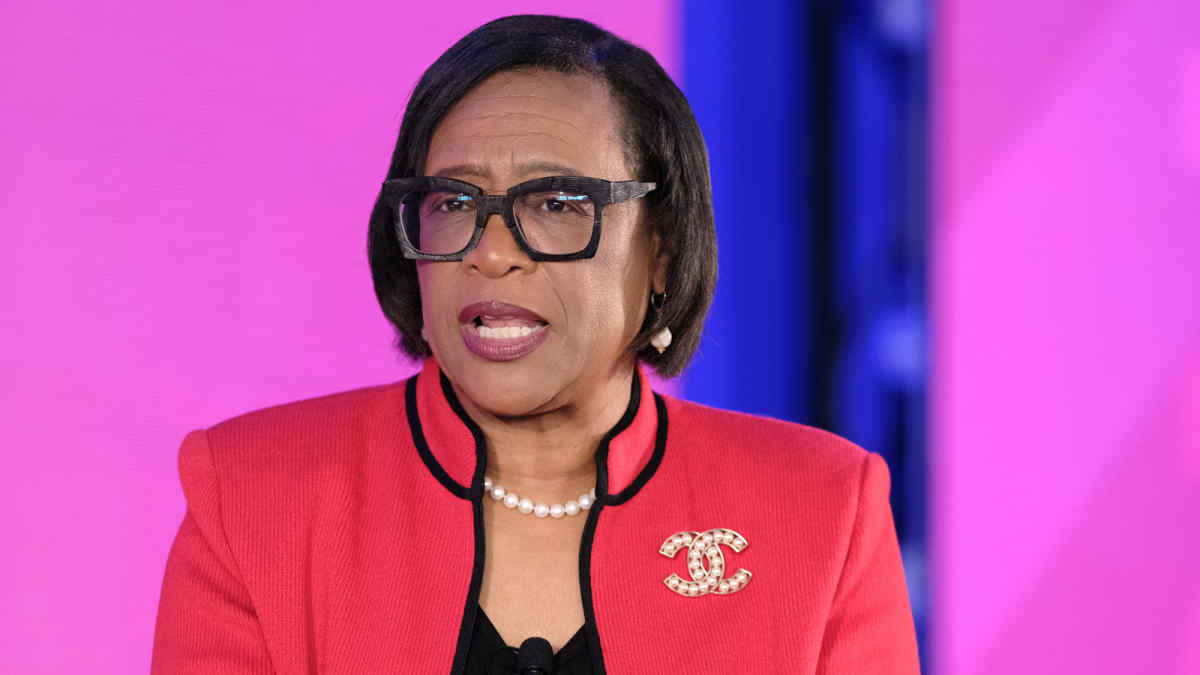

?In 2018, Cynthia “Cynt” Marshall became CEO and president of the National Basketball Association’s Dallas Mavericks—making her the first Black woman to assume such a role.
Marshall, who boasts decades of experience as a business executive, discussed her journey and the importance of diversity, equity and inclusion (DE&I) during an Oct. 24 general session at the SHRM INCLUSION 2022 conference in San Diego.
She began by talking about how she has unintentionally broken barriers throughout her life, from being the first Black class president of her high school to serving as the first Black executive at several companies.
“Representation matters,” Marshall told the crowd. “But I’ve often been the only Black woman at the table.”
Marshall has made DE&I a priority in each of her jobs. She noted that a diverse workforce fosters more perspective, which enriches an organization, promotes diversity of thought and helps the company achieve strategic goals.
In one of her first meetings with the Dallas Mavericks, Marshall noticed that there were no women or people of color on the executive team. Within the first 100 days of her tenure, half the people on her leadership team were women. Today, the executive team is 50 percent women and 50 percent people of color.
“[Marshall] has transformed the Dallas Mavericks into the gold standard of inclusion and diversity,” said Zac Bradley, a DE&I public speaker and vocational specialist with the Shepherd Center, a rehabilitation hospital in Atlanta.
However, Marshall noted that hiring diverse talent isn’t enough. In many instances, companies do that to “check a box.” Instead, business leaders need to try to increase inclusion and belonging, which helps employees from underrepresented backgrounds feel comfortable and valued.
“I like to say that diversity is being invited to the party,” Marshall said. “Inclusion is being asked to dance.”
How HR Saved Marshall’s Life
Marshall grew up in public housing in Richmond, Calif., a community that has long been considered among the most crime-ridden in the state. She had an abusive father who once broke her nose in a fit of rage and, in a separate incident, shot a man in the head in self-defense.
As an adult, Marshall suffered several miscarriages and dealt with the death of her 6-month-old baby. She was also diagnosed with Stage 3 colon cancer, for which she underwent more than a dozen rounds of chemotherapy.
“I was one lymph node away from Stage 4 [cancer],” she said. “It was discovered due to a corporate HR program. The HR professionals made me get a colonoscopy that helped save my life.”
Despite her hardships, Marshall continued to dedicate herself to her job duties. She attended every meeting and conference to support the business. Her employer stepped in and made her take a day off to recuperate from sickness caused by the cancer and treatments.
“My bosses from the beginning were all about me getting healthy,” Marshall said. “They were there for me from the beginning. They truly had my best interests at heart.”
She described how these experiences shaped her outlook in her memoir You’ve Been Chosen: Thriving Through the Unexpected (Random House, 2022).
‘Our Job as Leaders’
In one of her roles, Marshall started a program called “Coffee with Cynt,” which allowed female employees to have discussions with her about work and life. However, she said some of the men wanted their own time with her, as well.
“I remember telling them, ‘We have five ERGs [employee resource groups],’ ” she recalled. “I asked how many 40-year-old, single white men were within the company. And I told one gentleman that maybe we should create an ERG for them.”
To her surprise, the male employee said he didn’t believe the company needed an ERG for white men.
“He said, ‘I’m already a member of the ERGs for women and Black employees,’ ” Marshall said. “I was stunned. There is a place for everyone in all these ERGs.”
Marshall encouraged companies to launch multiple ERGs to support the needs of people of color, older workers, veterans and parents, but to be sure to allow anyone to attend.
Krystal Henck, an HR specialist with a federal agency in Washington, D.C., said the idea of having multiple ERGs for different populations of employees resonated with her.
“I enjoyed how she talked about the different ERG groups she started and how she gets everyone involved,” Henck said. “We are trying to find ways in our organization to get more people involved, so what she talked about made sense to me.”
Marshall said business leaders need to really understand their workforce. When she meets with new employees one-on-one, she makes a simple request: “Tell me about yourself—not just your role with the company but also your life experiences and where you see yourself in the next decade.”
“I want to help them achieve their goals personally, professionally and emotionally,” she said. “That is our job as leaders.”
